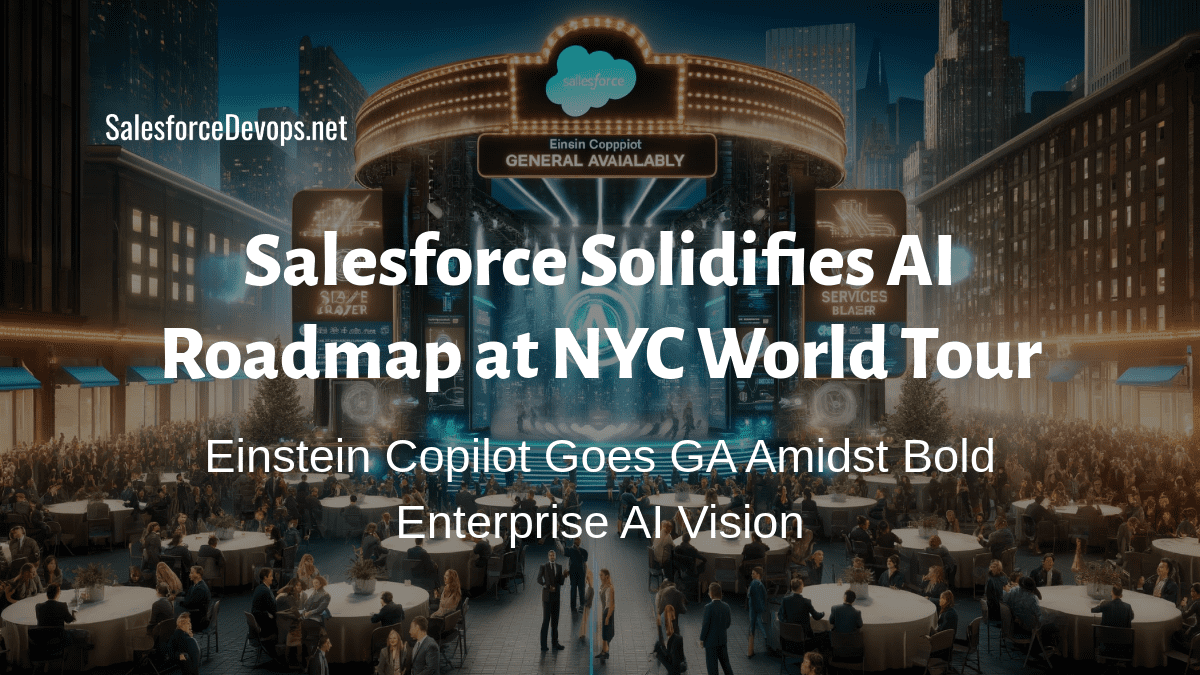Salesforce Unveils AI Cloud, Revolutionizing Enterprise AI
Salesforce, the global leader in Customer Relationship Management (CRM), has announced the launch of AI Cloud, a groundbreaking enterprise AI solution. This trusted, open, and business-ready platform is designed to supercharge enterprise productivity by integrating generative AI experiences across all Salesforce applications. This significant development underscores Salesforce’s unwavering commitment to trusted AI and its mission to empower companies of all sizes and industries to digitally transform and create a comprehensive 360° view of their customers.
The AI Cloud is set to be generally available this year, with the Einstein Trust Layer becoming generally available in June 2023. This announcement builds anticipation for what could be a game-changing event in the industry. As Salesforce continues to innovate and push the boundaries of what is possible with AI in CRM, the AI Cloud represents a significant step forward in this journey. It underscores Salesforce’s commitment to leading the way in AI-powered CRM solutions and sets the stage for further innovations to come.
“AI is reshaping our world and transforming business in ways we never imagined, and every company needs to become AI-first,” said Marc Benioff, Chair and CEO, Salesforce. “AI Cloud, built on the #1 CRM, is the fastest and easiest way for our customers to unleash the incredible power of AI, with trust at the center driven by our new Einstein GPT Trust Layer. AI Cloud will unlock incredible innovation, productivity, and efficiency for every company.”
Table of contents
What is AI Cloud?
AI Cloud is Salesforce’s latest and most ambitious offering in the realm of enterprise AI solutions. It is specifically built for CRM applications and is designed to be the fastest and most trusted way for companies to enhance enterprise productivity. This is achieved by integrating generative AI experiences across all Salesforce applications, a first in the industry.
AI Cloud is more than just a platform; it’s a comprehensive solution that integrates a range of Salesforce technologies. This includes Einstein, Salesforce’s AI technology, Data Cloud for comprehensive data management, Tableau for data visualization, Flow for process automation, and MuleSoft for application networks. Together, these technologies provide a trusted, open, real-time generative AI solution that is ready for business. This integration represents a significant leap forward in the application of AI in CRM, offering businesses an unprecedented level of intelligence and automation.
What is the Einstein Trust Layer?
A major challenge in enterprise AI is to create the right filters on information used to generate text. Salesforce already has an extensive data security model in Sales and Service clouds. The Einstein Trust Layer is an innovative feature that leverages those existing Salesforce data security features within AI Cloud. This innovative layer offers the benefits of generative AI while ensuring the utmost data privacy and data security. It represents Salesforce’s commitment to trust, a core value of the company.
The Einstein Trust Layer safeguards sensitive data within generative AI apps and workflows. This means that proprietary data is prevented from becoming part of public models. This not only enhances data security but also improves the quality of AI-generated content. Furthermore, it seamlessly integrates relevant AI responses into business processes, enhancing efficiency and effectiveness.

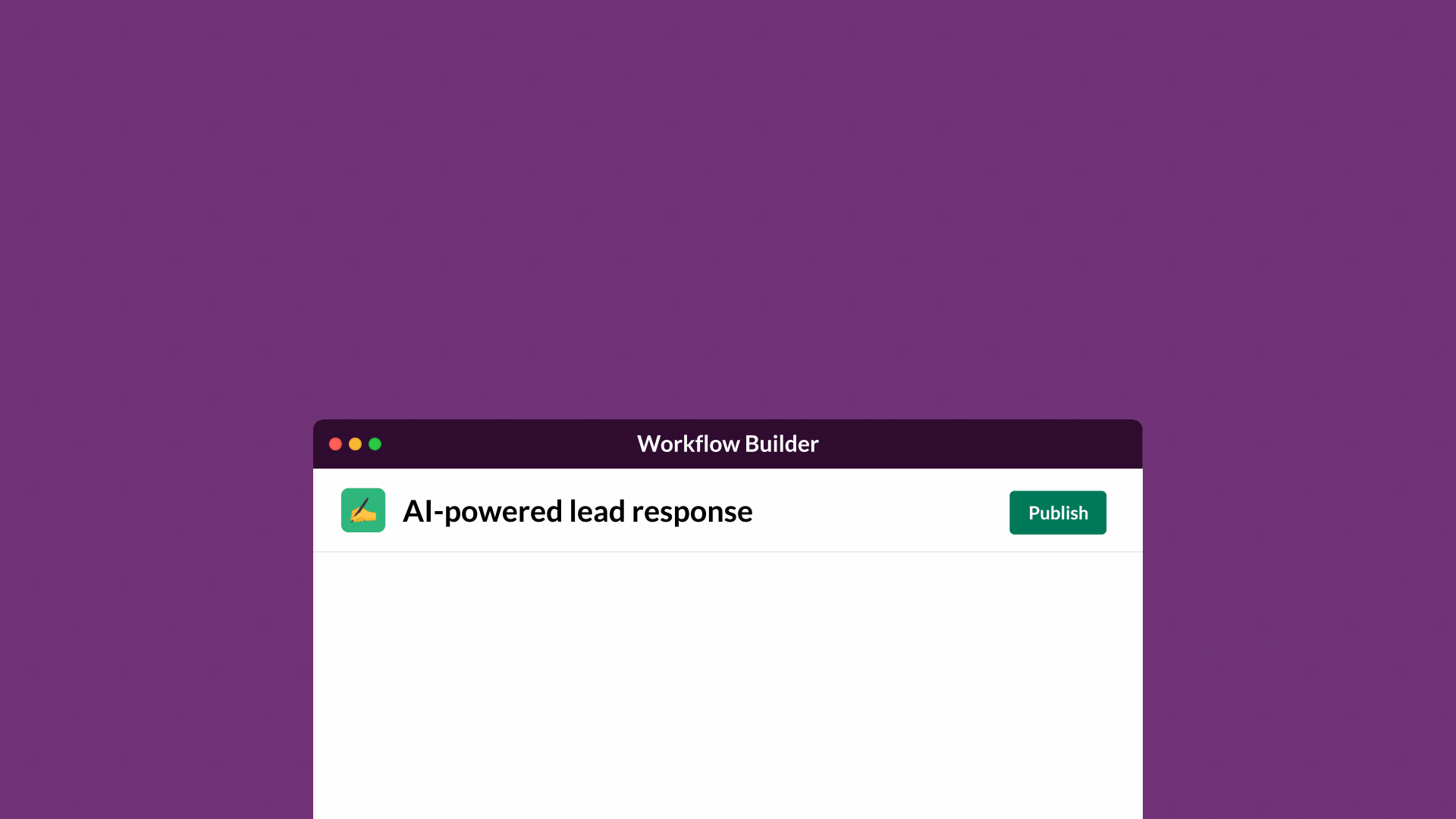

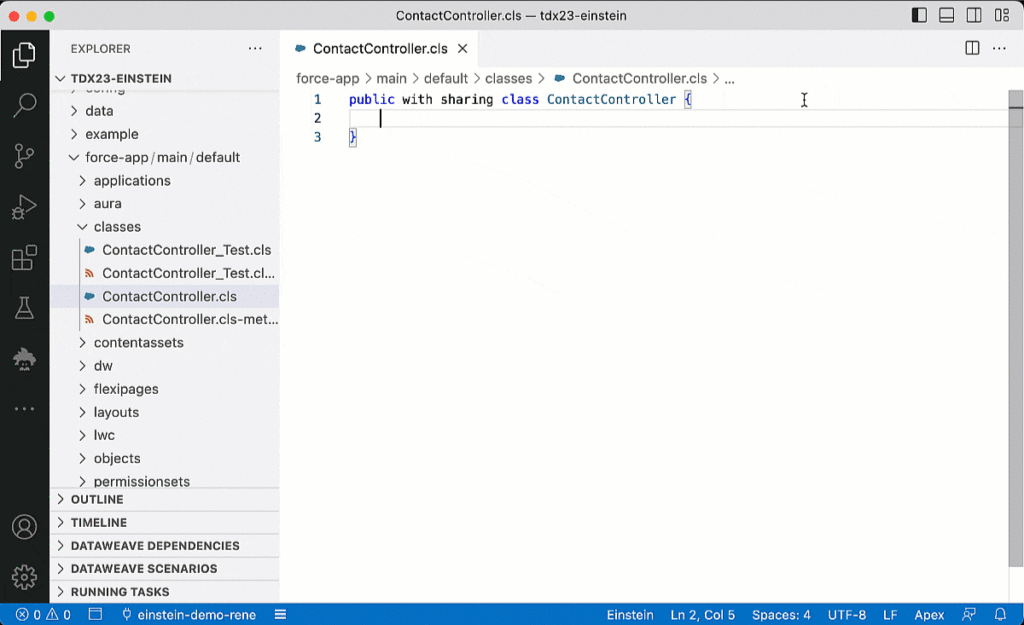
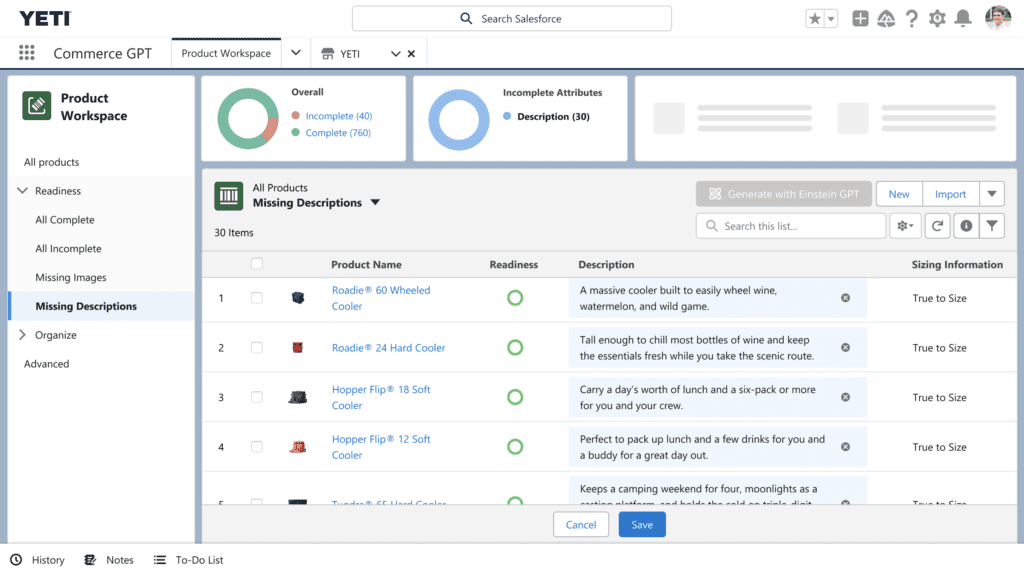
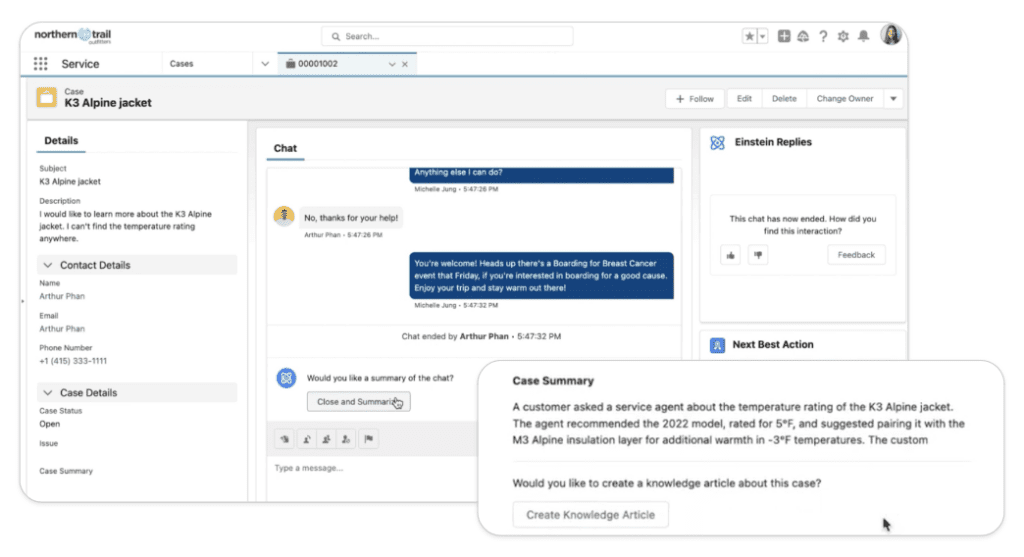
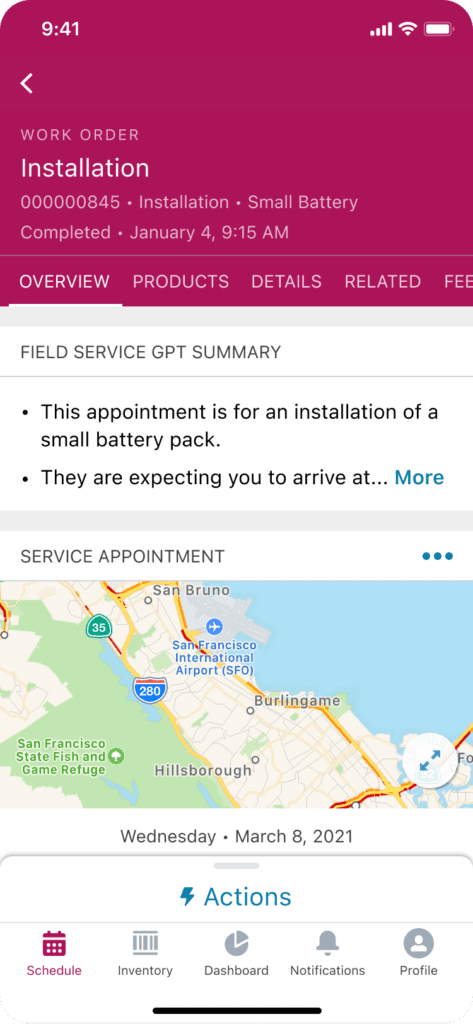
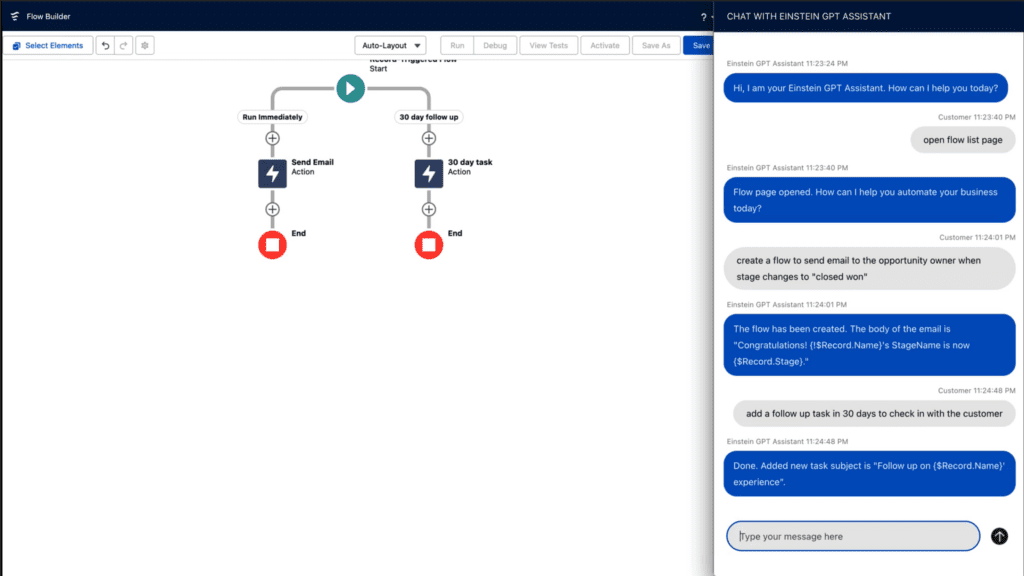


“Bring Your Own LLM”
In a move that signals Salesforce’s commitment to customer choice and flexibility, the Einstein Trust Layer makes AI Cloud open and extensible. This allows customers to choose their preferred Large Language Models (LLMs). This includes Salesforce’s proprietary models, models from OpenAI, Anthropic, Cohere, and other major tech companies.
Furthermore, Salesforce recognizes that some customers may have trained their own models outside of Salesforce. To cater to these customers, AI Cloud allows them to bring their own models while storing data on their own infrastructure. These models, whether running through Google’s Vertex AI or AWS’ SageMaker, connect directly to AI Cloud through the Einstein Trust Layer. This ensures seamless integration and operation, regardless of where the models are hosted.
Major Challenges Ahead
In a recent earnings call, Salesforce CEO Marc Benioff predicted that AI would drive the next wave of growth in technology. With these announcements, the company is marshaling the troops to fulfil that prophecy. The recent moves from Salesforce plus today’s AI Cloud promise to completely change how Salesforce will work within the next 18 months. It appears that every nook and cranny of the Salesforce product line will be infused with AI goodness within a year.
But Salesforce isn’t alone looking to grow from the new AI wave. Microsoft is the main competitor of Salesforce in enterprise AI. Microsoft, with its extensive Copilot program, and a very deep relationship with OpenAI, made strides at its recent Build developer conference. And Microsoft is no stranger to security models and enterprise data, either. Microsoft is currently running pilot programs where a chatbot in Microsoft Teams can use authorized Outlook and OneDrive data to ground AI conversations.
As Salesforce faces these new challenges, I’m concerned some old bad habits may come to haunt them. I’m talking about producing vaporware instead of shipping products. Since the March 7 announcements of Einstein GPT for Developers, virtually no one has been granted access to the pilot program. I have also heard of limited testing going on for GPT for Sales Cloud. So, I am quite concerned that Salesforce may be talking about products today that won’t ship for months, or even years.
If Salesforce doesn’t soon deliver integrated products within their own platform, then OpenAI API integrations will start to grow like weeds in AppExchange. The AI Cloud vision is nice, and the Einstein Trust Layer plays to Salesforce’s strengths, but let’s all hope that Marc Benioff and team can keep the promises made today.




